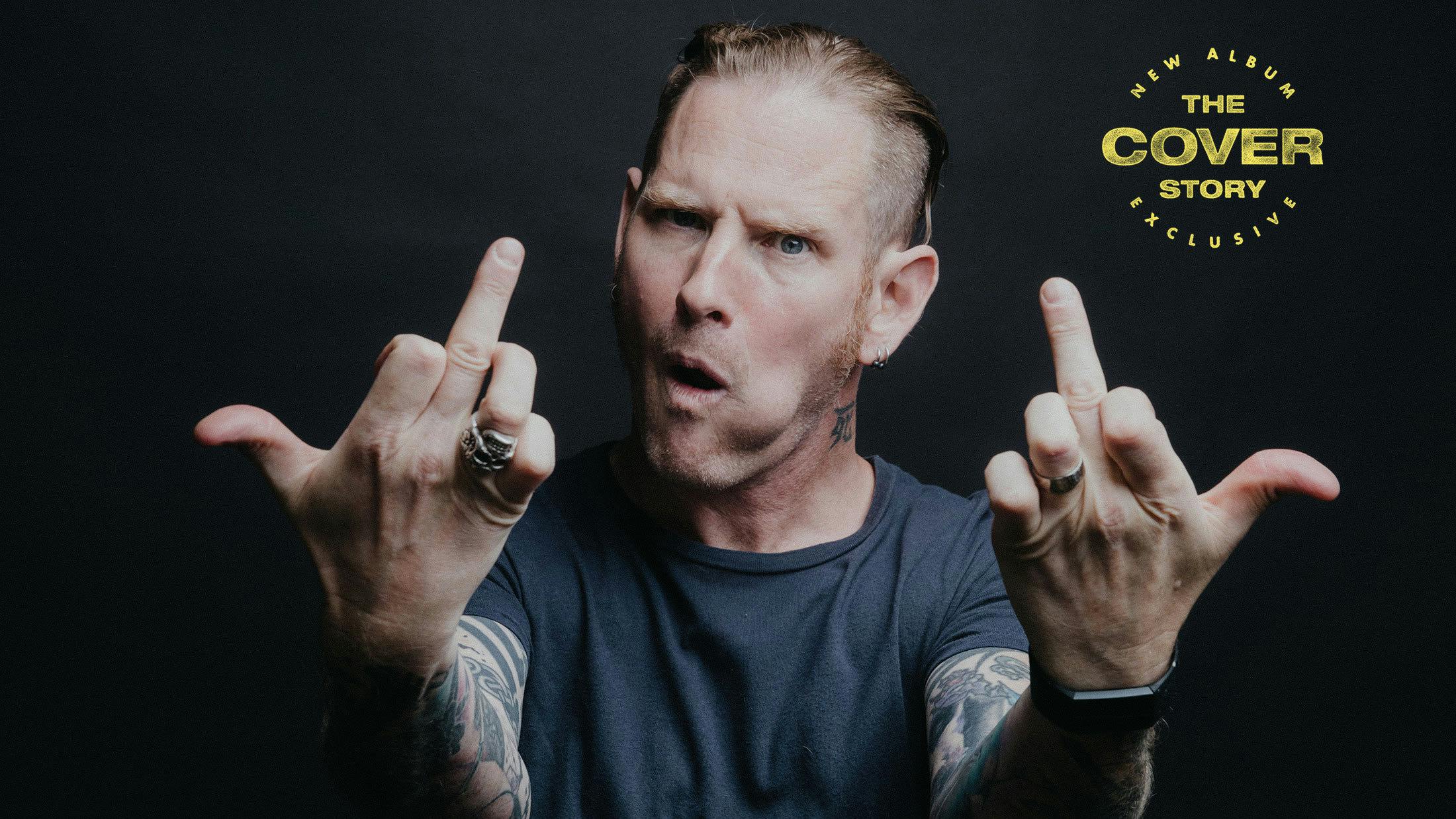The five of them decamped to Kevin Churko’s Hideout studio in Las Vegas, recruiting producer Jay Ruston to help realise Corey’s vision. And, across the span of two-and-a-half-weeks, the band birthed a whopping 25 songs – the 13 that make up CMFT, plus six covers and six acoustic versions of their original material to save as B-sides. All the while, they had an absolute blast.
“There were long days, but it wasn’t exhausting at all,” Corey smiles. “We all are such dorks that we were cracking each other up. There was no debate, we just knew what we wanted to do and did it. I don’t want to say it was ‘fate’, because that’s not the right word, but it was almost kismet: it just made sense for this to be the way that it was. There’s an explosive energy to it that feels so infectious. It’s one of the best things I’ve ever done.”
An average day began with the guys rolling in to the studio around midday, drinking coffee, hanging out and “talking shit” for an hour or so first. Then, they’d start to jam to “knock the rust off”, before tackling the actual songs. They opted for a live recording, with “99 per cent” of what you’ll hear on CMFT captured just as it was played. It was a loose, light-hearted and, most importantly, uplifting process that was immensely beneficial to Corey and his bandmates.
“I love what I’ve done in the past, I love the projects that I’ve been attached to, but this, honestly, was probably the most enjoyable album that I’ve done since the first Slipknot album,” he enthuses. “There was such a sense of, ‘We’re doing it together.’ I hadn’t felt anything like that for a really long time, man. People grow apart, relationships become fractious… people stop liking each other sometimes, in certain bands, you know? But with this, it was totally different, because we were all friends before that. We just happened to all play together, and then we formed a band around that friendship, and it all really galvanised it.
“This has definitely made me appreciate making music again, let’s put it that way.”
